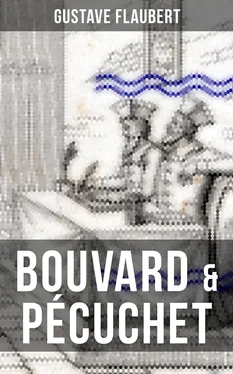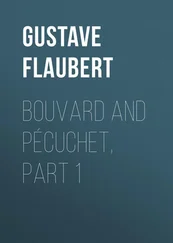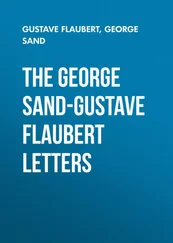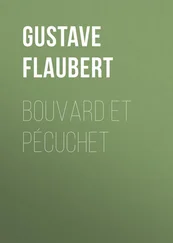Bouvard, always in a perspiration, had no garment on save his shirt and his trousers, drawn up to the pit of his stomach by his short braces; but, giddy as a bird, he would forget the opening in the centre of the cucurbit, or would make the fire too strong.
Pécuchet kept muttering calculations, motionless in his long blouse, a kind of child’s smock-frock with sleeves; and they looked upon themselves as very serious people engaged in very useful occupations.
At length they dreamed of a cream which would surpass all others. They would put into it coriander as in Kummel, kirsch as in Maraschino, hyssop as in Chartreuse, amber-seed as in Vespetro cordial, and sweet calamus as in Krambambuly; and it would be coloured red with sandalwood. But under what name should they introduce it for commercial purposes? — for they would want a name easy to retain and yet fanciful. Having turned the matter over a long time, they determined that it should be called “Bouvarine.”
About the end of autumn stains appeared in the three glass bowls containing the preserves. The tomatoes and green peas were rotten. That must have been due to the way they had stopped up the vessels. Then the problem of stoppage tormented them. In order to try the new methods, they required money; and the farm had eaten up their resources.
Many times tenants had offered themselves; but Bouvard would not have them. His principal farm-servant carried on the cultivation according to his directions, with a risky economy, to such an extent that the crops diminished and everything was imperilled; and they were talking about their embarrassments when Maître Gouy entered the laboratory, escorted by his wife, who remained timidly in the background.
Thanks to all the dressings they had got, the lands were improved, and he had come to take up the farm again. He ran it down. In spite of all their toils, the profits were uncertain; in short, if he wanted it, that was because of his love for the country, and his regret for such good masters.
They dismissed him coldly. He came back the same evening.
Pécuchet had preached at Bouvard; they were on the point of giving way. Gouy asked for a reduction of rent; and when the others protested, he began to bellow rather than speak, invoking the name of God, enumerating his labours, and extolling his merits. When they called on him to state his terms, he hung down his head instead of answering. Then his wife, seated near the door, with a big basket on her knees, made similar protestations, screeching in a sharp voice, like a hen that has been hurt.
At last the lease was agreed on, the rent being fixed at three thousand francs a year — a third less than it had been formerly.
Before they had separated, Maître Gouy offered to buy up the stock, and the bargaining was renewed.
The valuation of the chattels occupied fifteen days. Bouvard was dying of fatigue. He let everything go for a sum so contemptible that Gouy at first opened his eyes wide, and exclaiming, “Agreed!” slapped his palm.
After which the proprietors, following the old custom, proposed that they should take a “nip” at the house, and Pécuchet opened a bottle of his Malaga, less through generosity than in the hope of eliciting eulogies on the wine.
But the husbandman said, with a sour look, “It’s like liquorice syrup.” And his wife, “in order to get rid of the taste,” asked for a glass of brandy.
A graver matter engaged their attention. All the ingredients of the “Bouvarine” were now collected. They heaped them together in the cucurbit, with the alcohol, lighted the fire, and waited. However, Pécuchet, annoyed by the misadventure about the Malaga, took the tin boxes out of the cupboard and pulled the lid off the first, then off the second, and then off the third. He angrily flung them down, and called out to Bouvard. The latter had fastened the cock of the worm in order to try the effect on the preserves.
The disillusion was complete. The slices of veal were like boiled boot-soles; a muddy fluid had taken the place of the lobster; the fish-stew was unrecognisable; mushroom growths had sprouted over the soup, and an intolerable smell tainted the laboratory.
Suddenly, with the noise of a bombshell, the still burst into twenty pieces, which jumped up to the ceiling, smashing the pots, flattening out the skimmers and shattering the glasses. The coal was scattered about, the furnace was demolished, and next day Germaine found a spatula in the yard.
The force of the steam had broken the instrument to such an extent that the cucurbit was pinned to the head of the still.
Pécuchet immediately found himself squatted behind the vat, and Bouvard lay like one who had fallen over a stool. For ten minutes they remained in this posture, not daring to venture on a single movement, pale with terror, in the midst of broken glass. When they were able to recover the power of speech, they asked themselves what was the cause of so many misfortunes, and of the last above all? And they could understand nothing about the matter except that they were near being killed. Pécuchet finished with these words:
“It is, perhaps, because we do not know chemistry!”
Конец ознакомительного фрагмента.
Текст предоставлен ООО «ЛитРес».
Прочитайте эту книгу целиком, купив полную легальную версию на ЛитРес.
Безопасно оплатить книгу можно банковской картой Visa, MasterCard, Maestro, со счета мобильного телефона, с платежного терминала, в салоне МТС или Связной, через PayPal, WebMoney, Яндекс.Деньги, QIWI Кошелек, бонусными картами или другим удобным Вам способом.












